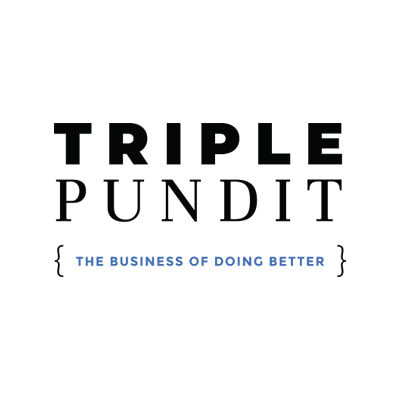
If you’ve ever walked into the alternative milk aisle at your grocery store, you might know the feeling of overwhelming choices. If you look closer at the labels, it is hard to find varieties without an abundance of added sugars that still have the protein levels comparable to an animal-derived milk.
At the 2016 SXSW Eco conference, we learned about a new brand, Ripple Foods, which was created in hopes of disrupting these norms. Adam Lowry, co-founder of Method, and Dr. Neil Renninger, co-founder of Amyris, teamed up to find a way to alleviate the intense impacts of dairy farming. The dairy industry contributes 23 percent of the total carbon footprint of all food products, surpassing both meat and eggs.
After selling Method, Lowry focused on the dilemma that we need to produce more food in the next 50 years than we have in the previous 10,000.
This daunting reality set Lowry and Renninger on the plant-based milk path. They wanted to create a more innovative product than a simple nut milk, like the popular almond which is highly water-intensive. And they wanted their product to far exceed the nutritional value of dairy milk and be a creamier, more palatable substitute to existing alternative milks.
“We looked at the top five reasons people go dairy-free,” Lowry said this week in Austin, Texas. “The last of those is because they have to, and the top four are because they want to.”
“The hardest part is the protein,” Dr. Renninger explained. Many plant-based milks that are high in protein taste just like their sources, like soy or peas. “We developed technology that cleans up plant protein sources so that they don’t taste this way.”
The company claims its milk requires 93 percent less water than dairy milk, as well as a significant reduction in greenhouse gases. The milk's main protein source, yellow peas, requires 85 percent less water to grow than almonds, according to the company. Ripple’s bottles are also made from 100 percent post-consumer recycled plastic; and that plastic can be recycled by 99 percent of U.S. households.
The duo named the product Ripple to represent all of the small actions and choices we make every day, and how they can add up and create a ripple effect for more conscious and sustainable living.
Now that it has four milk flavors on the market, the company's goal is to create even more healthy, plant-based food products under the Ripple Foods brand.
Image courtesy of Ripple (press use only)

TriplePundit editors offer news and insights on sustainable business.














